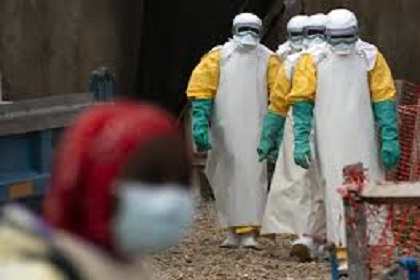
Nigeria Free of Ebola Amid New Outbreak in DRC – NCDC
The Nigeria Centre for Disease Control and Prevention (NCDC) has clarified that there are currently no reported cases of the Ebola Virus Disease (EVD) within the country.
This reassurance came through a public health advisory issued on September 6, in response to a newly confirmed outbreak of Ebola in the Democratic Republic of Congo (DRC). According to the DRC’s Ministry of Health, as of September 4, 2025, the outbreak in Kasai Province has resulted in 28 suspected cases and 15 fatalities—including four healthcare workers. Laboratory testing conducted in Kinshasa identified the Zaire strain of the Ebola virus as responsible.
In light of the situation, the NCDC noted that while Nigeria remains Ebola-free, proactive measures are being taken to prevent any possible importation of the virus. Surveillance efforts have been intensified at key points of entry, and healthcare facilities nationwide are being bolstered to enhance infection prevention and control capacities.
“Early recognition, isolation of patients, and supportive treatment reduce the risk of death,” the agency warned, urging Nigerians to maintain strict hand hygiene, avoid contact with persons showing symptoms of fever, diarrhoea or bleeding of unknown cause, and avoid direct contact with wildlife or raw bushmeat.
The Nigeria Centre for Disease Control and Prevention (NCDC) also called on healthcare professionals across the country to remain alert for any potential signs of Ebola Virus Disease (EVD). Medical personnel are advised to exercise heightened caution, strictly follow infection control protocols, and promptly report any suspected cases through official channels.
The current outbreak in the Democratic Republic of Congo (DRC) has been linked to the Ebola Zaire strain—a variant for which a licensed vaccine, Ervebo, is available. Emergency response teams, with support from the World Health Organization (WHO), have already been deployed to contain the spread in affected areas.
As a precautionary measure, the NCDC has issued travel advice, urging the public to avoid non-essential travel to regions experiencing confirmed Ebola cases. Individuals entering Nigeria from these countries—particularly those who develop symptoms such as fever, vomiting, or unexplained bleeding within 21 days of arrival—are encouraged to immediately contact the NCDC via its toll-free line: 6232.
Nigeria’s vigilance around Ebola remains rooted in its past experience. On August 6, 2014, the country recorded its first Ebola case after Patrick Sawyer, a Liberian-American, arrived in Lagos while infected. The outbreak tragically claimed the lives of several individuals, including frontline healthcare workers like Dr. Ameyo Adadevoh and nurse Justina Ejelonu, who played crucial roles in containing the spread.
Following a swift and coordinated national response, Nigeria was officially declared Ebola-free by the World Health Organization on October 20, 2014.